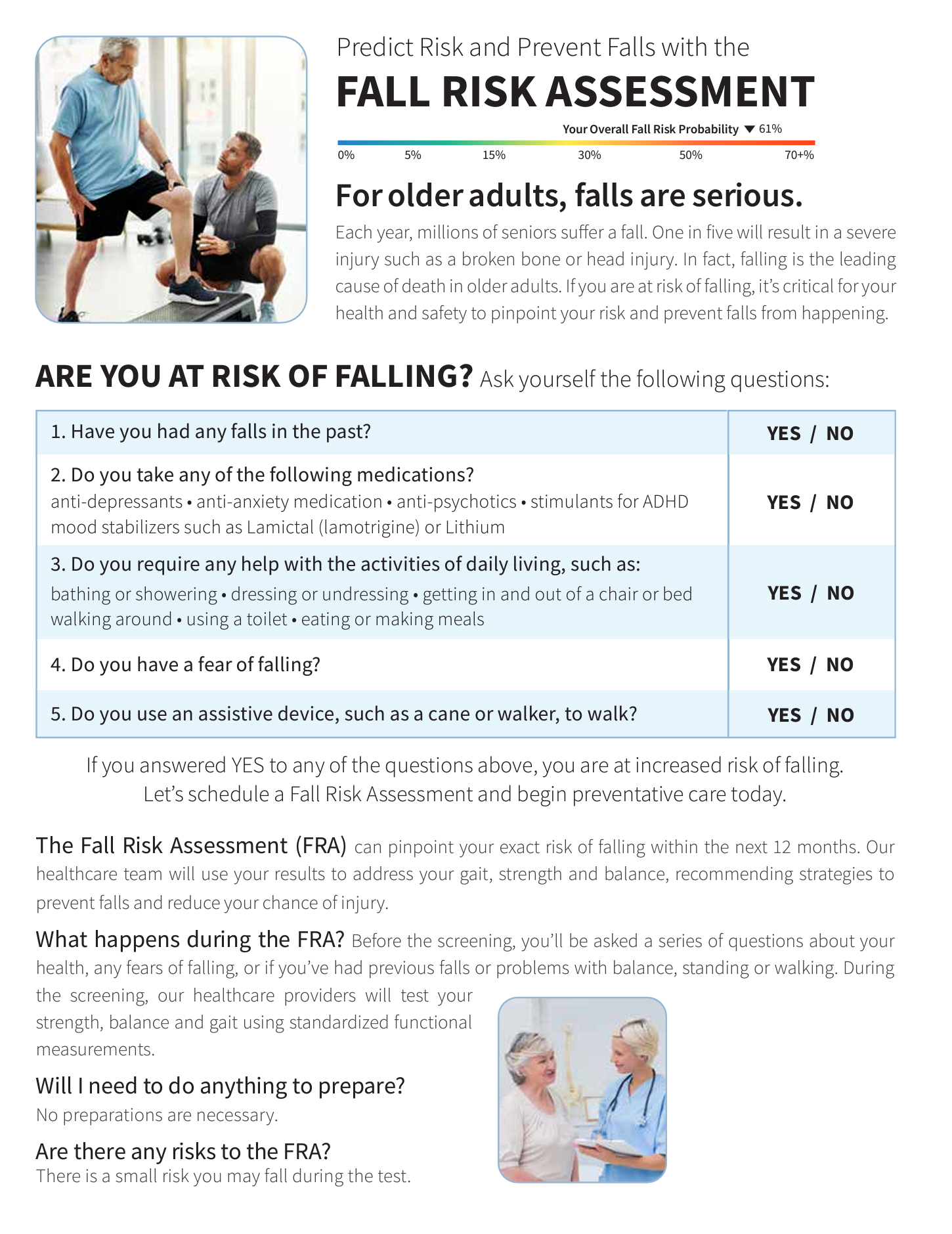The Ultimate Guide To Dementia Fall Risk
Table of ContentsSome Known Questions About Dementia Fall Risk.Dementia Fall Risk - TruthsThe Facts About Dementia Fall Risk RevealedDementia Fall Risk - QuestionsAn Unbiased View of Dementia Fall Risk
You could be anxious due to the fact that you have actually had a loss prior to or due to the fact that you have actually seen you're beginning to really feel unsteady on your feet. You may have discovered modifications to your health and wellness, or just seem like you're reducing a little. Whatever the factor, it isn't uncommon to end up being careful and lose confidence, and this can stop you doing things you made use of to do and make you feel a lot more isolated.If you have actually had a fall or you've begun to really feel unstable, tell your physician even if you feel great or else. Your physician can check your balance and the means you stroll to see if enhancements can be made. They may have the ability to refer you for a drops danger assessment or to the drops avoidance service.
This details can be gotten with interviews with the individual, their caregivers, and a testimonial of their medical records. Begin by asking the specific regarding their history of drops, including the regularity and conditions of any type of recent drops. Dementia Fall Risk. Ask about any flexibility issues they may experience, such as unstable or trouble walking
Conduct a comprehensive review of the person's medications, paying certain attention to those recognized to enhance the threat of falls, such as sedatives or drugs that lower high blood pressure. Figure out if they are taking multiple medicines or if there have actually been recent adjustments in their medicine routine. Assess the person's home environment for possible hazards that can enhance the danger of falls, such as bad lights, loose rugs, or absence of grab bars in the restroom.
How Dementia Fall Risk can Save You Time, Stress, and Money.
Guide the individual through the loss threat analysis type, describing each concern and taping their actions precisely. Determine the total risk rating based on the feedbacks given in the evaluation form.
This strategy might include exercise programs to improve toughness and equilibrium, medicine adjustments, home modifications, and references to various other specialists as needed. Routinely monitor the person's development and reassess their risk of drops as required. Modify the treatment strategy based on changes in their wellness condition or home environment. Give continuous education and assistance to promote safety and security and minimize the risk of drops in their daily living tasks.
Numerous researches have shown that physical treatment can aid to reduce the danger of dropping in grownups ages 65 and older. In a new research study (that considered falls danger in ladies ages 80 and older), scientists calculated the economic effect of selecting physical treatment to avoid falls, and they discovered that doing so conserves $2,144, consisting of all the covert expenses of your time, discomfort, missed out on life events, and the dollars paid for services.
The 4-Minute Rule for Dementia Fall Risk
Evaluating your balance, toughness, and strolling ability. A home safety analysis. Based on the examination results, your physical therapist will certainly create a plan that is customized to your certain needs.
Older grownups who his explanation have difficulty strolling and speaking at the very same time go to a higher threat of falling. Dementia Fall Risk. To aid boost your safety throughout daily tasks, your physiotherapist might develop a training program that will certainly challenge you to preserve standing and strolling while you do an additional job. Examples include strolling or standing while counting backwards, having a discussion, or bring a bag of grocery stores
Establish objectives for enhancing their physical activity. Work out more to enhance their stamina and balance. These programs usually are led by volunteer instructors.
Little Known Questions About Dementia Fall Risk.

Measles, or rubeola, is a very infectious, intense viral transmittable condition brought on by the measles virus. Some individuals assume of measles as just a rash and high temperature that browse around here improves in a couple of days; nevertheless, measles can create severe health and wellness difficulties, specifically in youngsters more click for info youthful than 5-years-old. The most effective protection versus measles is the measles, mumps, and rubella (MMR) vaccine.
Autumns are a typical reason for injury amongst older adults. According to the CDC, in one year alone, fall-related injuries added to over $50 billion in clinical prices (Dementia Fall Risk). In medical facility settings, older adults are at specifically high danger of drops since their lowered movement from being restricted to a space or bed.
The Basic Principles Of Dementia Fall Risk

She has no history of falls, her gait is consistent, and she voids with no concerns. The previous nurse states that she calls for assistance to the shower room when she requires to go.
Examples of typical autumn interventions/measures include: Ensuring a person's necessary products are available. Putting the individual's bed rails up with the alarm system on. Aiding a client while they're getting up from bed. Beyond recognizing exactly how to use the Johns Hopkins Loss Risk Analysis Tool, it's crucial that centers integrate its usage into a much more comprehensive fall avoidance plan.